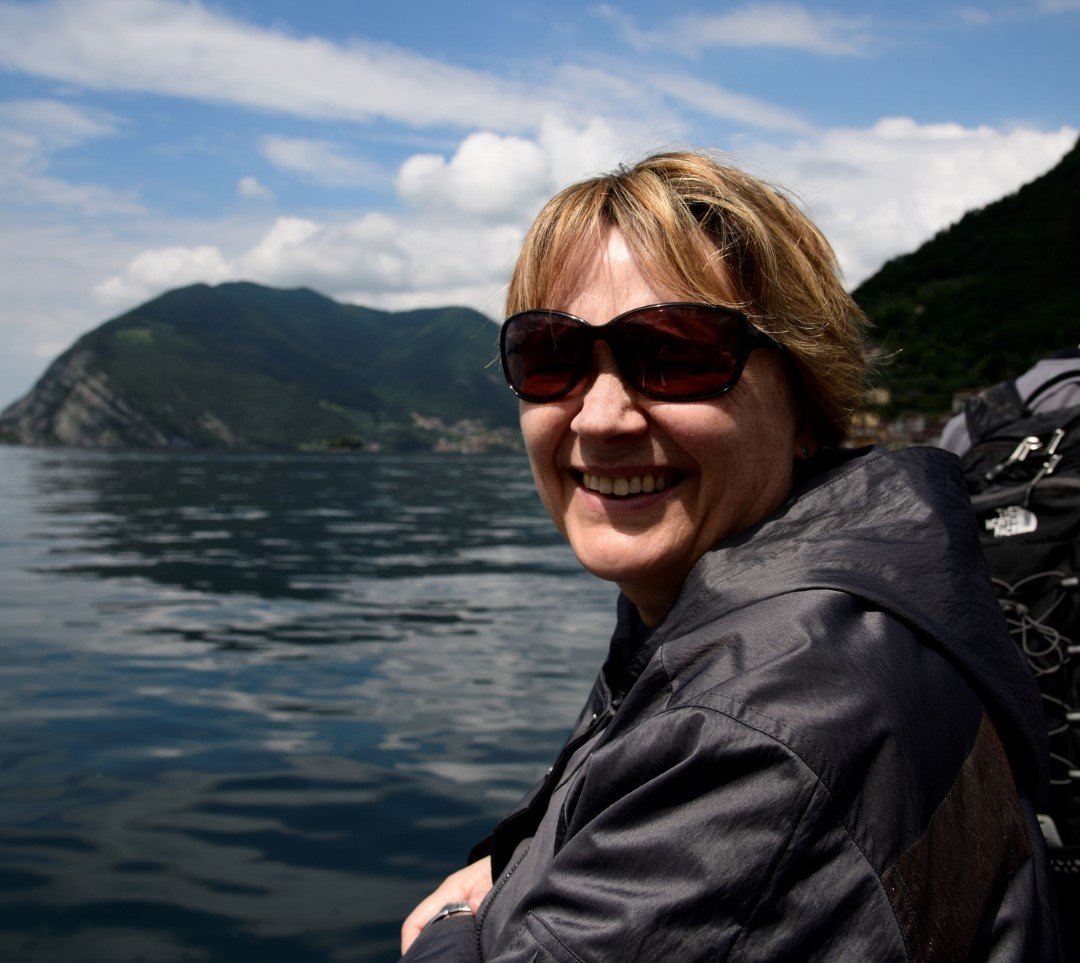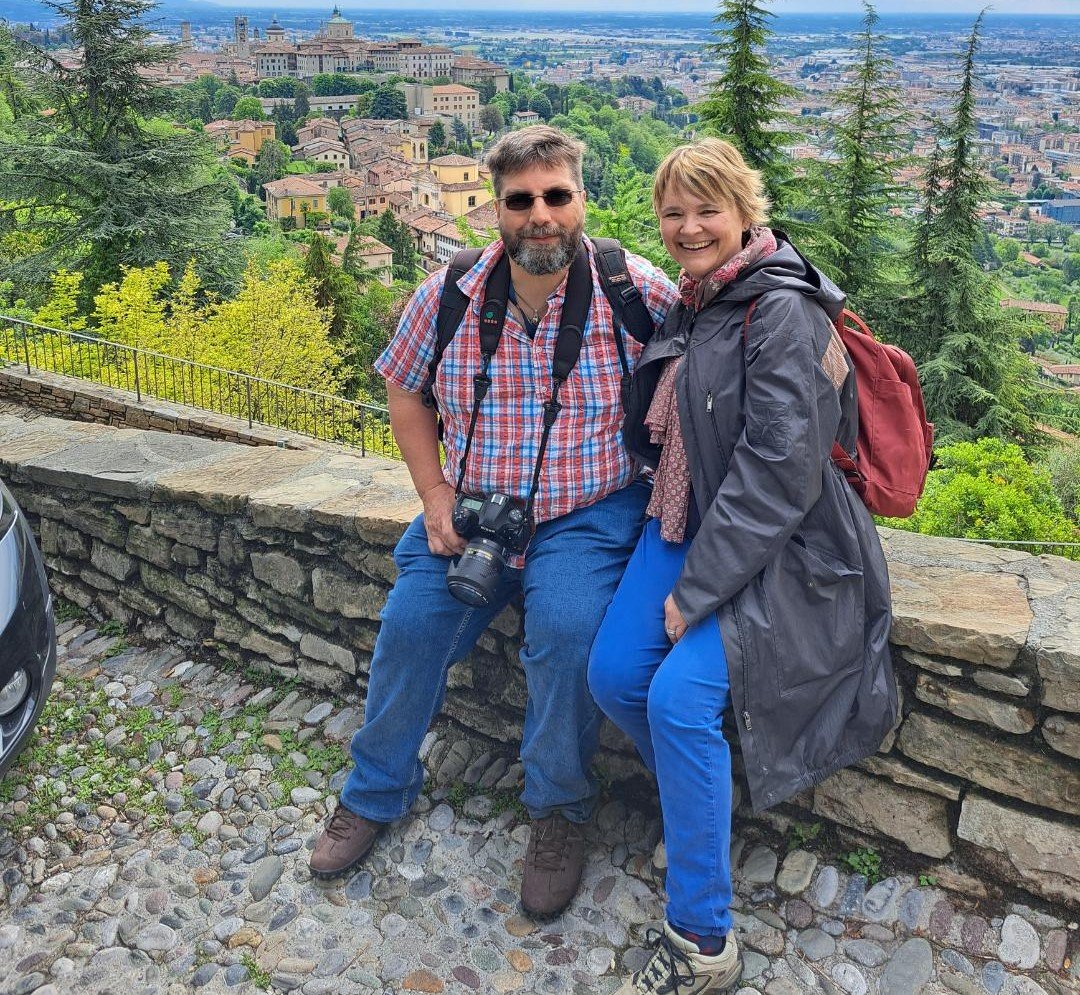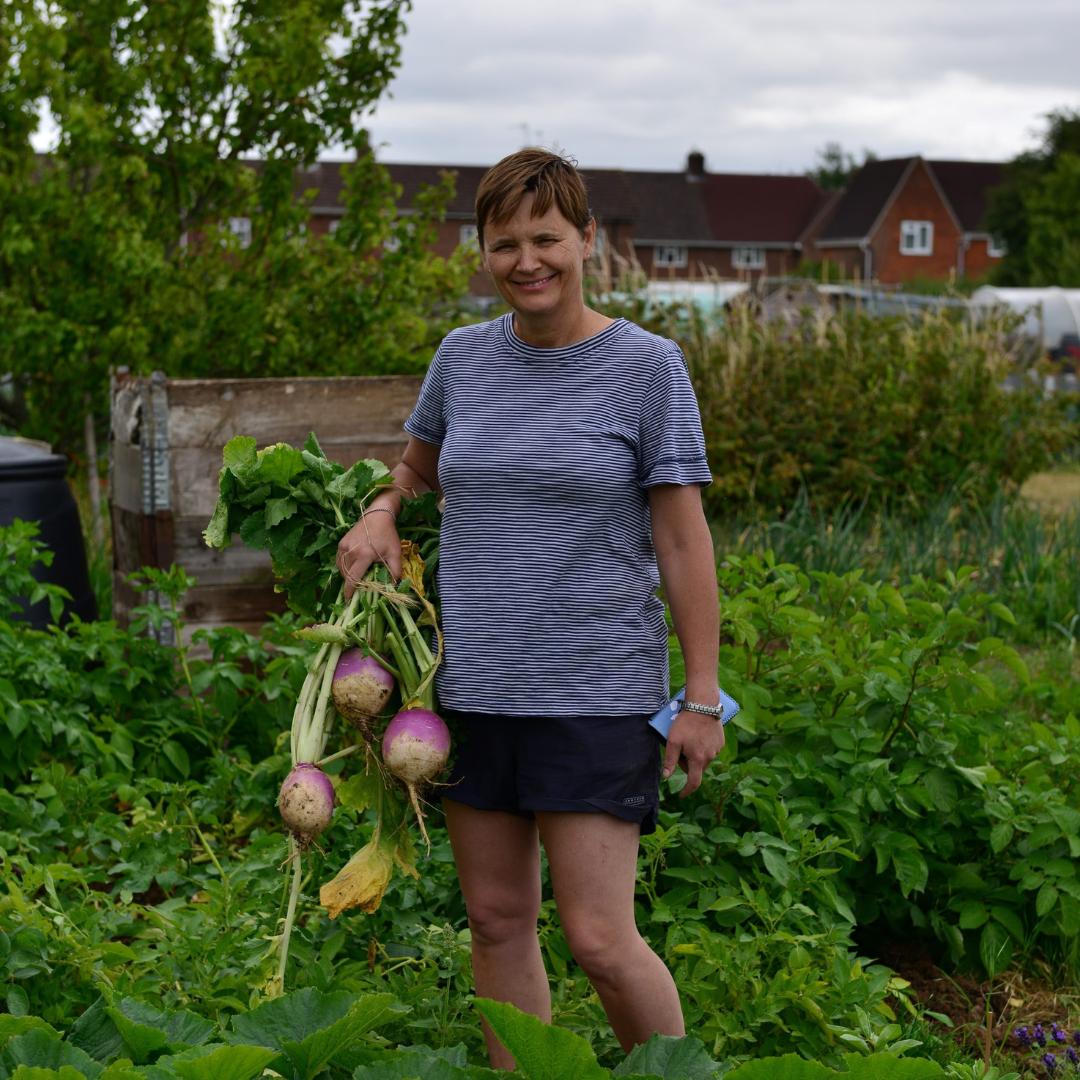Karen was diagnosed with arrhythmogenic cardiomyopathy (ARVC) in January 1991 when she was 24 years old. Karen has shared her cardiomyopathy journey with us, from the initial diagnosis to now living with the condition for over 30 years.
The diagnosis
I was experiencing a few symptoms before my diagnosis. I started to notice my heart doing strange things. I was quite fit so my very fast heart rate, popping out of my chest like Popeye, and feeling very sweaty at minor exertion, seemed odd.
The process of getting a diagnosis was fairly quick. I was studying in Bath at the time of my diagnosis, and my GP, Dr Hubbard suspected ARVC almost immediately. I was put on a 24-hour Holter monitor which confirmed the diagnosis and recorded a heart rate of 360 beats per minute when I was climbing a flight of stairs.
I felt stunned when I received my diagnosis. I was very healthy, I always made sure I was eating well and exercising. Between the ages of six and nine, my family and I lived in Hong Kong. We were always climbing mountains or skiing in Austria or Switzerland. My dad was in the army, and I went running with him often, I also played squash and tennis. It seemed inconceivable that I could have a heart condition.

As far as I am aware, we don’t have a history of cardiomyopathy in our family. There were some early deaths of some of my relatives, but it is difficult to know if this was due to cardiomyopathy. I think my condition could have been triggered by a virus when we lived in Hong Kong, however, there isn’t any evidence to prove it. I remember waking up in the middle of the night in so much pain and throwing up, which was very unlike me. I went to the hospital but nothing conclusive came back and there aren’t any records from this time. I remember I stayed in the one air-conditioned room in our flat, my parent’s room, for a week. Under every cloud…
The emotional impact of cardiomyopathy
Before being diagnosed with ARVC, I thought heart conditions were something older people had. A friend of mine had a pacemaker when she was only 20 which I thought was strange, little did I know that I would be fitted with an ICD (implantable cardioverter defibrillator). It was a Friday evening at the end of October 1993, and I was returning home on the bus. On that fateful evening, I decided to go to a yoga class. At approximately 6pm that evening I suffered a cardiac arrest. Fortunately, someone from the public who was having a sauna did CPR, an ambulance crew followed, and 15 minutes later the paramedics brought me back to life with a defibrillator. I cannot remember a great deal of this time. There was a film crew in the back of the ambulance making a programme about the South West Ambulance Service. They recorded everything of my cardiac arrest. Looking at myself is not an easy watch.
When I was first diagnosed, I admit to feeling a bit defeatist, and I struggled to settle into life and work. My sister remembers my cardiac team talking about me, saying I was unlikely to make it to 40. I chose to ignore that, and I’m glad I did, I’m nearly 57 now. I decided to see my diagnosis as a challenge. ARVC wasn’t going to beat me. I was told early on I wouldn’t be able to have a family, which was devastating but at the same time, I was glad to be alive.
It hasn’t been easy for my family or friends. My parents were living in Cyprus at the time of my cardiac arrest and had a horrific flight over to the UK, not knowing if I was dead or alive. I tended to avoid the pitying stares and distanced myself from many of my friends. While they were getting married, having their own families, and building their lives, I was dealing with a different reality.
Living with cardiomyopathy
I work part-time as a career adviser. Stress is my enemy, so I try to keep it to a minimum. I don’t like it when the device shocks me. Feeling it building up to shock is almost more frightening than the shock itself, and then knowing that I’m going to lose my driving license is devastating. I gave up alcohol recently because I think that might have contributed to some of the shocks I was getting. I didn’t drink a lot, but I still think it influenced my arrhythmias. For nearly 20 years I didn’t experience many shocks, and in 30 years of living with ARVC, I haven’t had much advice about alcohol and healthy eating. I’ve always been passionate about good food and I’m sure this has helped me.

My husband and I have two allotments. I’ve always loved cooking and eating, so getting an allotment seemed like a great pairing. We had the first one for eight years and decided to take on a second one this year to grow asparagus, which takes three years, and more soft fruits and fruit trees. I can dig right down to the ends of the earth for bindweed – that’s probably the hardest job - I enjoy digging over the plots every winter, but of course, weeding in the summer is much easier.
We go on holiday to Italy at least once a year. I can get travel insurance and I keep my fingers crossed that my device doesn’t go off and ruin it for us. So far, the trips abroad have been fine. I haven’t been quite so lucky with our staycations.
I’ve been living with cardiomyopathy for over 30 years now, and I think I’m doing well. I’ve survived a lead extraction for my ICD, where 4m of leads were removed and my device was re-sited to my shoulder from my abdomen. I believe a nibbling surgical robot helped with the extraction of the leads which get embedded into the tissue and veins over time. I knew it was a tricky op for the surgeon, he was very candid and told me his previous patient didn’t make it. The lead impedance had been on watch for many years, with me making regular visits to St Georges to keep a check on them. I never missed an appointment, I have never missed any appointments, ever.
Part of the thinking was to delay the surgery until robot technology improved to help with the extraction. It was a great plan; I was lucky to survive. Dr Gallagher and his team did a great job, and I can’t thank them enough. I did my part and recovered with no issues whatsoever. I’ve always tried to stay healthy, take responsibility for my health, eat well and exercise as much as ARVC with lots of beta blockers and anti-arrhythmias will allow. I make sure I understand as much as I can about my condition, the advances in ARVC, and my drugs. Education is power, and it helps me to help myself. I feel I owe it to the great cardiologists who helped me to do my bit.
I try very hard not to bring many issues to the door of the HR department at the college where I work, and I kept my ARVC a secret for several years. All my battery changes have been in my own time and my lead extraction operation took place during half-term. I can’t remember the last time I took time off sick, I even had COVID while I was on holiday! In January this year, I became a Cardiomyopathy UK heart-to-heart volunteer to help support others going through a similar experience to me.
I pinch myself every day for the second chance I’ve been given - I’m the luckiest woman alive.

We know that a diagnosis of cardiomyopathy can feel overwhelming and frightening. We often hear from our community that hearing the experiences of others and their families can be a lifeline, helping them to feel reassured, informed and less isolated. If you would like to share your story, click the link below.